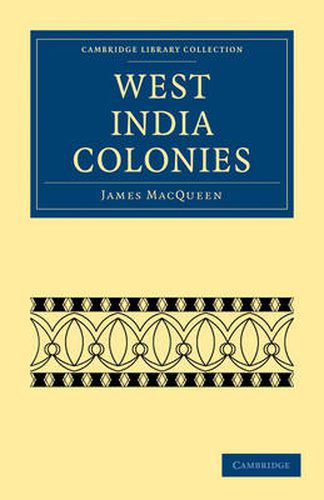Readings Newsletter
Become a Readings Member to make your shopping experience even easier.
Sign in or sign up for free!
You’re not far away from qualifying for FREE standard shipping within Australia
You’ve qualified for FREE standard shipping within Australia
The cart is loading…






James MacQueen (1778-1870) was one of the most outspoken critics of the British anti-slavery campaign in the 1820s and 1830s. A former manager of a sugar plantation in the Caribbean, he was editor of the Glasgow Courier, a paper that favoured West Indian merchant interests and opposed rights for slaves. First published in 1824, this book is a direct attack on contemporary anti-slavery campaigners, such as William Wilberforce and Thomas Clarkson, whom MacQueen holds responsible for ‘the dreadful misrepresentations scattered abroad’ about West India colonies and the planters. MacQueen, who insists on calling himself an enemy of slavery ‘in the abstract’, argues that abolition in the colonies would lead to insurrections, bringing chaos and barbarism to these territories. This, in turn, would lead to the loss of the British colonies. This volume remains an essential document in the context of post-colonial studies.
$9.00 standard shipping within Australia
FREE standard shipping within Australia for orders over $100.00
Express & International shipping calculated at checkout
James MacQueen (1778-1870) was one of the most outspoken critics of the British anti-slavery campaign in the 1820s and 1830s. A former manager of a sugar plantation in the Caribbean, he was editor of the Glasgow Courier, a paper that favoured West Indian merchant interests and opposed rights for slaves. First published in 1824, this book is a direct attack on contemporary anti-slavery campaigners, such as William Wilberforce and Thomas Clarkson, whom MacQueen holds responsible for ‘the dreadful misrepresentations scattered abroad’ about West India colonies and the planters. MacQueen, who insists on calling himself an enemy of slavery ‘in the abstract’, argues that abolition in the colonies would lead to insurrections, bringing chaos and barbarism to these territories. This, in turn, would lead to the loss of the British colonies. This volume remains an essential document in the context of post-colonial studies.